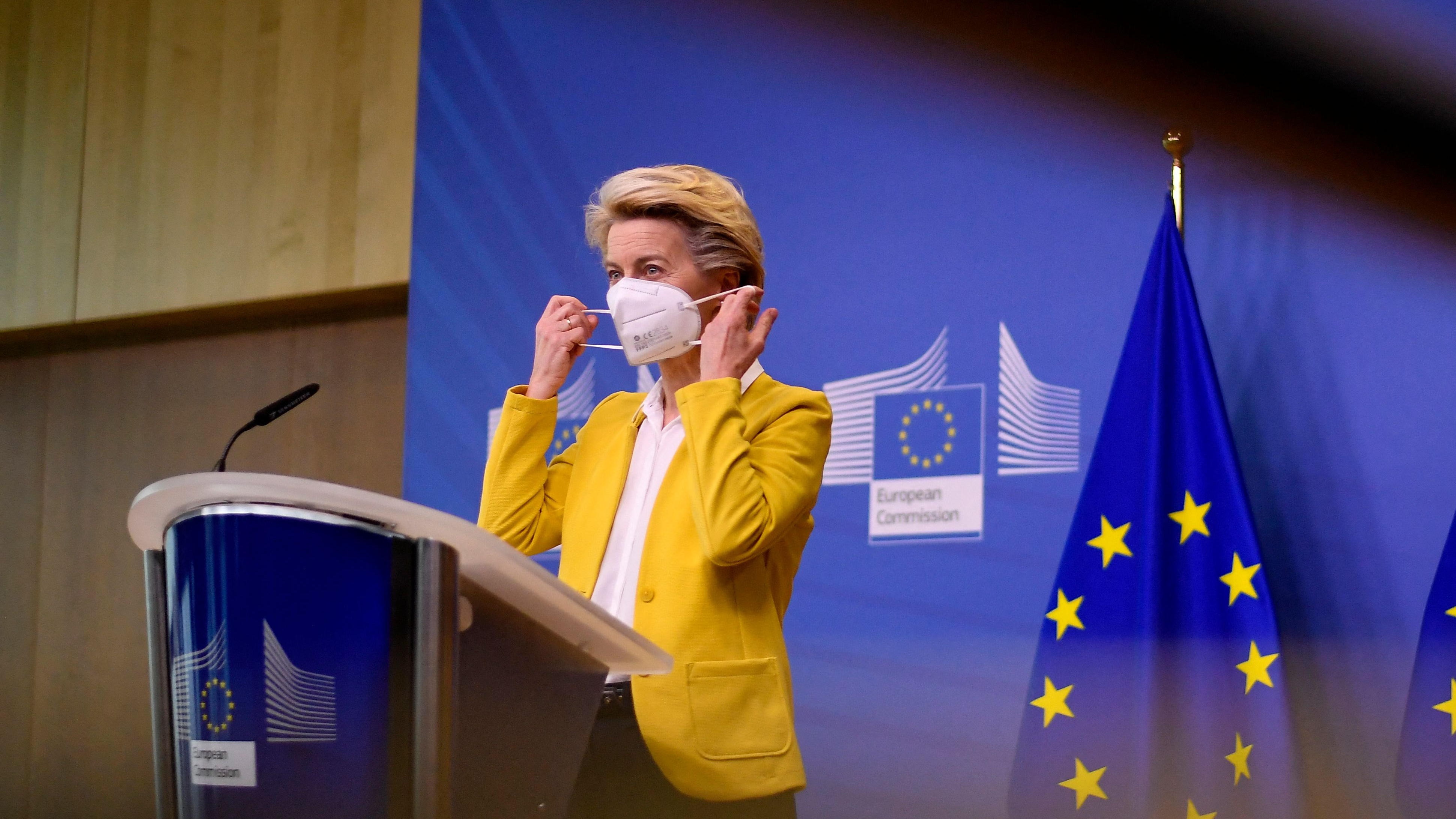EU ‘preparing to sue’ AstraZeneca over missing Covid doses
Ireland’s health minister confirms that Brussels is considering a possible lawsuit over delivery shortfall

A free daily email with the biggest news stories of the day – and the best features from TheWeek.com
You are now subscribed
Your newsletter sign-up was successful
The European Commission is looking at taking vaccine producer AstraZeneca to court for cutting Covid vaccine deliveries, Ireland’s health minister has confirmed.
The issue was raised during a meeting of EU ambassadors yesterday, “during which the majority of EU countries said they would support suing the company” after “it massively failed to deliver pledged doses to the bloc”, Politico reported last night. One diplomat said the ultimate aim was to ensure that the Cambridge-based company delivered the promised number of doses.
Stephen Donnelly told the Irish parliament today that the legal case had “been initiated” around AstraZeneca’s “complete failure to meet its delivery and contractual agreements for April, May and June”, Sky News reports. However, a European Commission spokesperson told the broadcaster: “The decision to take legal action has not been taken at this point in time.”
The Week
Escape your echo chamber. Get the facts behind the news, plus analysis from multiple perspectives.

Sign up for The Week's Free Newsletters
From our morning news briefing to a weekly Good News Newsletter, get the best of The Week delivered directly to your inbox.
From our morning news briefing to a weekly Good News Newsletter, get the best of The Week delivered directly to your inbox.
An EU official told Reuters: “It is about fulfilment of deliveries by the end of the second quarter.”
The bloc signed an agreement with AstraZeneca for the delivery of 300 million vaccines by the end of June, but the pharma giant announced last month that only 70 million would be handed over to the EU27 by that deadline.
The company has come under fire after cutting supplies several times to levels much lower than promised, with the European Commission blaming the “shortfalls in AstraZeneca deliveries for the slow pace of its vaccination rollout”, says The Telegraph.
The newspaper predicted that any legal action would probably come down to a dispute over “breach of contract”, with Brussels accusing AstraZeneca of reneging on its deal amid “suspicions that some EU stock may have gone to Britain or other countries”. AstraZeneca denies the allegations.
A free daily email with the biggest news stories of the day – and the best features from TheWeek.com
A senior EU source said yesterday that the bloc will also not use an option to secure a total 300 million extra doses of AstraZeneca and Johnson & Johnson vaccines that the bloc secured under existing contracts, reports Reuters’ EU correspondent Francesco Guarascio.
The decision is another clear “sign Brussels is looking to distance itself from AstraZeneca”, Guarascio adds, following a public rebuke of the EU from the pharmaceutical company’s CEO in January.
A string of EU countries have suspended the use of the Oxford-AstraZeneca vaccine among some or all age groups amid concerns about rare blood clots.
However, the bloc is pushing to speed up its rollout, with latest Oxford University tracking showing that it has administered 117.8 million vaccines so far - which equates to just 26.49 per 100 people having received at least one dose.
Joe Evans is the world news editor at TheWeek.co.uk. He joined the team in 2019 and held roles including deputy news editor and acting news editor before moving into his current position in early 2021. He is a regular panellist on The Week Unwrapped podcast, discussing politics and foreign affairs.
Before joining The Week, he worked as a freelance journalist covering the UK and Ireland for German newspapers and magazines. A series of features on Brexit and the Irish border got him nominated for the Hostwriter Prize in 2019. Prior to settling down in London, he lived and worked in Cambodia, where he ran communications for a non-governmental organisation and worked as a journalist covering Southeast Asia. He has a master’s degree in journalism from City, University of London, and before that studied English Literature at the University of Manchester.